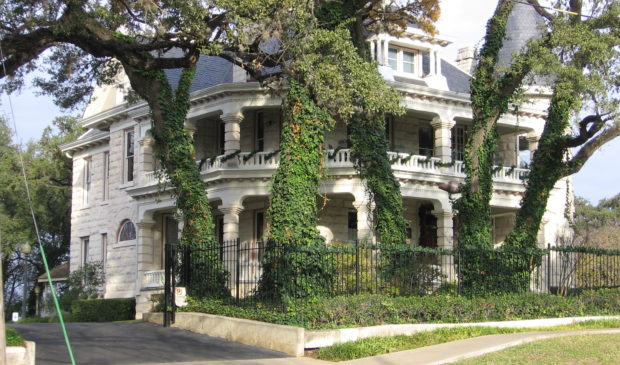Urban Affairs Committee takes up preservation bill
Tuesday, April 18, 2017 by
Caleb Pritchard A state representative will be making some changes to a bill he proposed that would set a rigorous statewide standard for historic preservation against a property owner’s objections.
Discussion of Houston-area Rep. Gary Elkins’ House Bill 3418 at the April 11 House Urban Affairs Committee meeting lasted more than an hour. Elkins kicked it off by denying any intention to quash cities’ ability to preserve historic structures.
“I strongly support historic preservation,” Elkins asserted. “And I also strongly support private property rights, and property owners should have a say in regards to their property.”
He noted that most major Texas cities have ordinances that allow for the protection of culturally significant buildings. However, he added, “Abuse of these statutes has become prevalent as neighborhoods and civic associations exploit interpretations to secure historic designations and to prevent infill, development, or density in or around the established neighborhoods.”
HB 3418 would impose statewide criteria mandating that any property qualified for preservation must be either the site of a “widely recognized” historic event or associated with a “historic figure who lived at the property location.”
It would also require Austin’s Historic Landmark Commission to achieve a three-fourths supermajority to send along to City Council any preservation cases opposed by the property owners. Council would likewise have to achieve the same supermajority to override owners’ wishes.
Currently, the Historic Landmark Commission needs a two-thirds majority to advance a preservation case to Council against the will of the owner. However, the body voted in late March to endorse a new resolution that would lower the threshold to a simple majority, though the change will ultimately require City Council approval.
Finally, HB 3418 would give cities only 30 days to approve or deny an owner’s request to demolish a property. Currently, the Historic Landmark Commission can delay a demolition up to 180 days if they determine it may be historic.
Representatives from Preservation Austin, Preservation Texas, and San Antonio’s Office of Historic Preservation testified against HB 3418.
Preservation Austin Executive Director Kate Singleton derided the supermajority requirement at the commission level, saying that it “takes away the City Council’s authority to vote on historic designation.”
Shannon Miller, director of the city’s Office of Historic Preservation, knocked the bill’s broad language. “The proposed eligibility criteria ignore community-driven aspects of heritage, such as local culture, building traditions and archaeological resources that have shaped our communities,” she said.
Preservation Texas Executive Director Evan Thompson argued that a statewide law is unnecessary because most cities have successful preservation programs. He noted problems with one city in particular.
“Austin is not a great example of a well-managed preservation ordinance and program. It needs improvement,” Thompson said, citing a recent report from the Office of the City Auditor that determined the Planning and Zoning Department is understaffed compared with those of other cities. “The rest of the state should not have to pay the price for those very bad examples that are very valid,” Thompson concluded.
Other speakers testified on behalf of the bill, including former Austin Historic Landmark Commissioner Arif Panju, who argued that preservation is “not being used for legitimate purposes.” He concurred with Elkins’ assertion that instead it is being used as a tool to preempt new housing. “They have used historic designation to push people out,” said Panju.
At the end of the hearing, the committee left the bill pending; Elkins promised to change the language to clarify its emphasis on protecting property owners who object to preservation.
Photo by David E Hollingsworth (Own work) [GFDL, CC-BY-SA-3.0 or CC BY-SA 2.5-2.0-1.0], via Wikimedia Commons
The Austin Monitor’s work is made possible by donations from the community. Though our reporting covers donors from time to time, we are careful to keep business and editorial efforts separate while maintaining transparency. A complete list of donors is available here, and our code of ethics is explained here.
You're a community leader
And we’re honored you look to us for serious, in-depth news. You know a strong community needs local and dedicated watchdog reporting. We’re here for you and that won’t change. Now will you take the powerful next step and support our nonprofit news organization?









